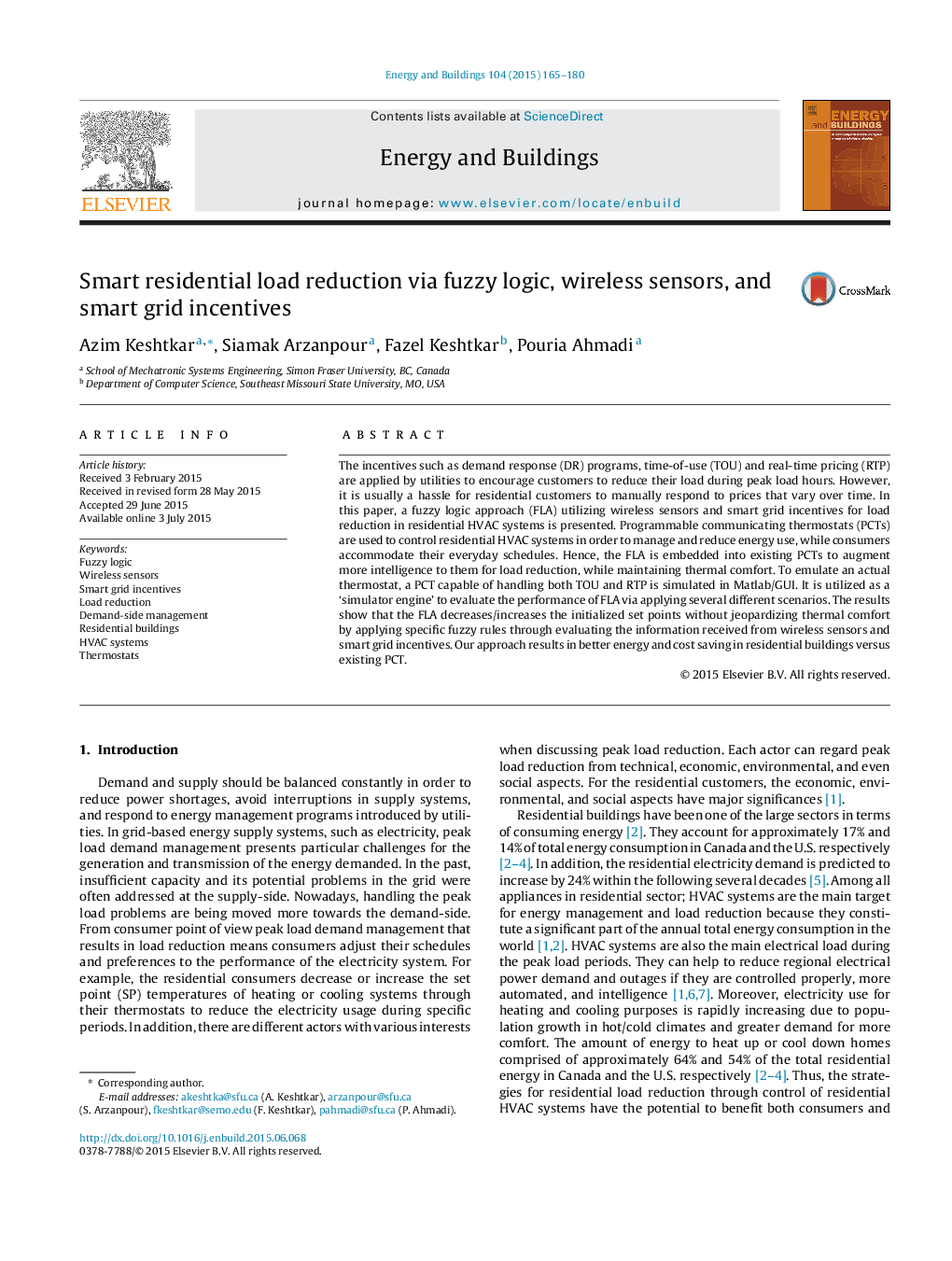| Article ID | Journal | Published Year | Pages | File Type |
|---|---|---|---|---|
| 262419 | Energy and Buildings | 2015 | 16 Pages |
•Simulation of a house simulator to evaluate existing and future smart thermostats.•To propose an autonomous system via fuzzy logic for demand-side management.•A smart thermostat capable of responding to smart grid incentives.•A thermostat capable of saving energy and cost without sacrificing thermal comfort.
The incentives such as demand response (DR) programs, time-of-use (TOU) and real-time pricing (RTP) are applied by utilities to encourage customers to reduce their load during peak load hours. However, it is usually a hassle for residential customers to manually respond to prices that vary over time. In this paper, a fuzzy logic approach (FLA) utilizing wireless sensors and smart grid incentives for load reduction in residential HVAC systems is presented. Programmable communicating thermostats (PCTs) are used to control residential HVAC systems in order to manage and reduce energy use, while consumers accommodate their everyday schedules. Hence, the FLA is embedded into existing PCTs to augment more intelligence to them for load reduction, while maintaining thermal comfort. To emulate an actual thermostat, a PCT capable of handling both TOU and RTP is simulated in Matlab/GUI. It is utilized as a ‘simulator engine’ to evaluate the performance of FLA via applying several different scenarios. The results show that the FLA decreases/increases the initialized set points without jeopardizing thermal comfort by applying specific fuzzy rules through evaluating the information received from wireless sensors and smart grid incentives. Our approach results in better energy and cost saving in residential buildings versus existing PCT.
